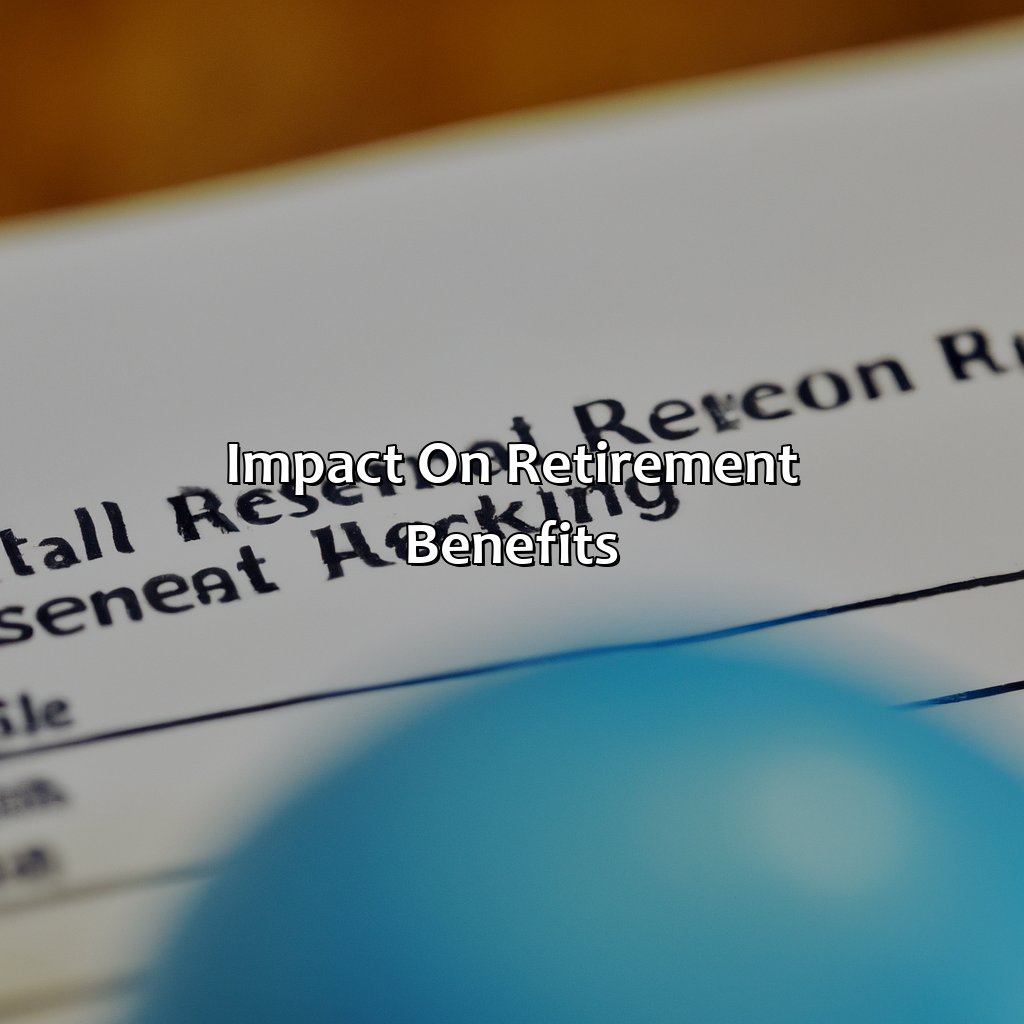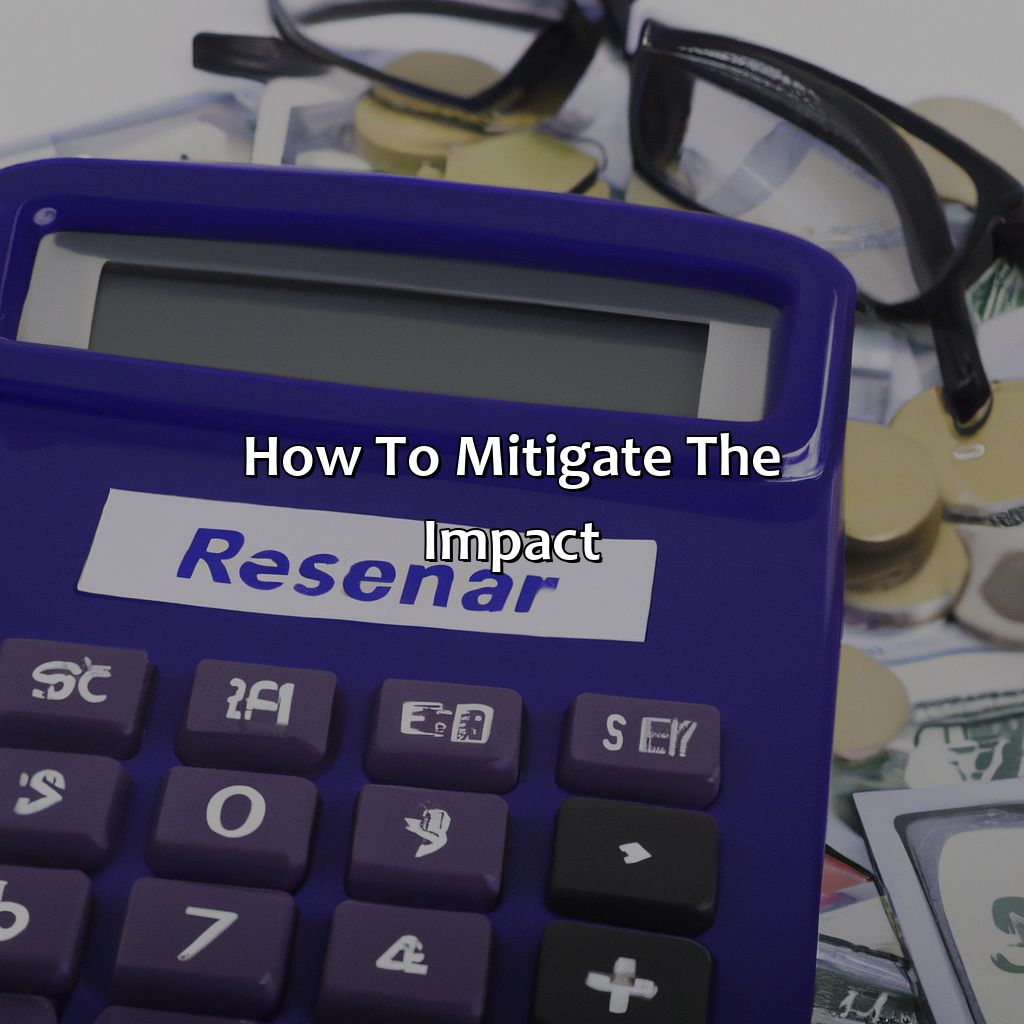What Happens In Your Retirement If You Have A Lapse In Years Of Work History?
Key Takeaways:
- A lapse in years of work history refers to a period of time where one has not worked or earned income, possibly due to illness, caregiving responsibilities, or unemployment.
- This can impact retirement benefits, particularly Social Security and pension benefits, as they are calculated based on one’s earnings history and the number of years worked.
- To mitigate the impact, individuals can consider delaying retirement, working longer to increase years of work history, or exploring part-time work or self-employment options.
- Alternative retirement savings options such as individual retirement accounts (IRAs) or annuities may also be worth considering.
- It’s important to plan for a secure retirement despite lapses in work history, by taking steps such as budgeting, saving, and seeking financial advice.
Do you worry that the years you took off work will effect your retirement plans? Don’t fret, you’re not alone! Read on to uncover the facts and make sure you are prepared for a secure retirement, no matter your work history. You can rest assured that you will be well taken care of.
What is a lapse in years of work history?
Having a break in the continuity of one’s employment is termed as a lapse in years of work history. It refers to a gap in the number of years between a person’s previous and current employment. This break may occur due to various reasons such as raising a family, pursuing education, or simply unemployment. A lapse in years of work history may affect a person’s retirement benefits and social security.
During retirement, a person’s benefits are calculated by considering the highest 35 years of their work history. If there is a gap, those years will be considered with $0 earnings, which may result in a lower benefit amount. It is essential to work towards accruing benefits for as long as possible to avoid such a gap.
It is recommended to use the social security benefit calculator to determine how a break in employment may affect one’s retirement benefits. It is also important to consider other options like part-time employment or self-employment to fill the gap.
There was a case where a woman had a career break to take care of her children. Later, when she returned to work, she made sure to work for a few more years to make up for the lost time. As a result, she was able to increase her social security retirement benefits. Taking small steps towards securing one’s retirement benefits can go a long way.

Image credits: retiregenz.com by Joel Woodhock
Impact on retirement benefits
Understand the impact of a break in your work history on your retirement benefits! An overview of this: “Impact on retirement benefits,” focusing on Social Security and Pension benefits. You’ll gain insight to the possible outcomes of gaps in your work history and how it affects your retirement funds.

Image credits: retiregenz.com by Harry Jones
Social Security benefits
The retirement benefits offered by the Social Security Administration are essential for seniors’ financial security. These benefits are based on your lifetime earnings and the number of years you worked. Having a gap in your work history can impact the amount of these benefits.
If you take a break from work or stop working entirely, the Social Security Administration will consider those years as zero-earning years. This may lower your lifetime average earnings, which would directly impact your retirement benefits. Consequently, it is crucial to have a steady income throughout your career to maximize these benefits.
It is worth noting that retirees are only eligible for Social Security if they have accumulated 40 credits during their working lives. Each credit represents a defined amount of earnings per year, with four credits available annually. You can earn these credits while working regardless of age, and they play an important role in determining eligibility for retirement benefits.
Recent studies indicate that almost one-third of workers who retire every year will have no private pension apart from the Social Security benefit (source: AARP). This emphasizes the importance of taking advantage of all available employment opportunities and contributing regularly to Social Security throughout one’s professional life.
Retirement plans: where you can’t afford to miss a deadline but the deadlines don’t miss you.
Pension benefits
Pension Plans – what you must know
Pension plans are significant retirement benefits provided by employers to their employees. Here are some key points you should be aware of:
- Eligibility: To receive pension benefits, you must meet eligibility requirements such as a minimum number of years worked.
- Vesting: Vesting means ownership. Pension benefits may not be available before they have vested. Vesting time is specified in the plan documents.
- Payouts: Pensions are paid out with one of two schedules defined in plan documents: monthly or lump sum payments at retirement. Employers may also offer early payouts.
- Impact on Retirement Income: A lapse in work history can impact the ability to accrue pension benefits for income during your retirement years.
It’s worth noting that individuals who do not qualify for employer-provided pensions may still be eligible for government-backed pensions.
According to the US Government Accountability Office, nearly half of Americans over 55 have no retirement savings, and those who save often find themselves falling short due to increasing life expectancies and healthcare costs.
Retire with a bang, not a whimper: follow these tips to soften the blow of a missing work history.
How to mitigate the impact
When you retire and have a gap in your years of work history, you can alleviate the impact by waiting to retire and working longer. Also, consider part-time work or self-employment. This will help you understand how to reduce the effect of a break in your employment.

Image credits: retiregenz.com by Adam Washington
Delay retirement
One possible literal meaning of ‘Delay Retirement’ could be ‘Postpone your retirement date’. A lapse in years of work history doesn’t necessarily mean jeopardizing your retirement.
Consider postponing your retirement date to make up for the lost time and continue contributing towards your retirement savings. Not only will this provide more time to boost your savings, but it can also help develop a better sense of financial security in the long run.
Additionally, postponing retirement may offer opportunities to learn new skills, network and engage with colleagues, potentially leading to increased job satisfaction and higher income during the extended working period.
Pro Tip: Be proactive about keeping up with industry trends and regularly updating your skills to stay relevant and valuable as an employee.
Looks like we’ll be seeing each other at the office well into our golden years. Better stock up on coffee and adult diapers.
Work longer to increase years of work history
Advantages of extending your work life and increasing your years of employment can positively affect your retirement plans. Retiring later may allow more time for saving, significant increases in social security benefits, and the ability to invest in growth securities. Moreover, working longer can reduce stress levels associated with retirement finances and focus on financial stability. It is essential to note that working extended hours should go hand in hand with maintaining good health and avoiding burnout.
Pro Tip: Consider negotiating more flexible work hours or working remotely to make it easier on yourself during a phased retirement.
Retirement is like a rehearsal for death, so why not make a little extra cash before the final performance?
Consider part-time work or self-employment
One way to address a gap in work history during retirement is to explore alternative income sources like part-time work or self-employment. Here are some points to consider:
- Freelancing and consulting opportunities using skills acquired over the years can fetch significant income.
- Part-time retail and customer service jobs are suitable for seniors, accessible, and offer flexible schedules.
- Developing online courses, e-books or starting a blog could generate passive income with minimal investment.
- Initiating business ventures such as coaching or selling products customized to your interests can bring greater autonomy and financial security.
By monetizing your skills and interests, you can also combat boredom that comes with retirement. Remember, it’s never too late to start! There are always opportunities out there, waiting for you.
Don’t let the fear of not having enough funds restrict you from living a comfortable life after retirement. Invest time in finding rewarding options available nearby or online within your interests and capabilities. Ultimately, an unconventional mode of making money could end up shaping your post-retirement identity positively.
Don’t worry, there’s always the option of winning the lottery or inheriting a fortune from a long-lost relative.
Alternative retirement savings options
Maximizing retirement funds through varied investment options is crucial for long-term financial security.
- Individual Retirement Accounts (IRAs) allow individuals to contribute up to a certain limit annually and offer tax benefits.
- 401(k) plans are employer-sponsored retirement savings plans that let employees contribute towards their retirement through payroll deductions, and the contributions are invested in stocks, bonds, or other assets.
- Health Savings Accounts (HSAs) allow individuals with high-deductible health plans to save money for medical expenses in retirement, with tax-free contributions and withdrawals if used for qualified expenses.
- Taxable investment accounts, such as mutual funds, exchange-traded funds, and stocks, can also contribute to retirement savings and provide potential long-term growth.
Consider consulting a financial advisor to determine which retirement investment options are best suited to your long-term financial goals and risk tolerance.
Maximize your retirement savings by contributing the maximum allowable amount to your retirement accounts and taking advantage of employer-matching contributions when available.

Image credits: retiregenz.com by Harry Arnold
Five Facts About Retirement With a Lapse in Work History:
- ✅ A lapse in work history can result in a lower Social Security benefit amount in retirement. (Source: Social Security Administration)
- ✅ Working even part-time can help fill in gaps in work history and increase retirement savings. (Source: U.S. News & World Report)
- ✅ Starting retirement savings early can help mitigate the impact of a work history gap. (Source: Investopedia)
- ✅ The average retirement age in the U.S. is 62, but some may need to work longer to make up for a gap in work history. (Source: The Motley Fool)
- ✅ Consulting with a financial advisor can help develop a retirement plan that takes a work history gap into account. (Source: Kiplinger)
FAQs about What Happens In Your Retirement If You Have A Lapse In Years Of Work History?
What happens in your retirement if you have a lapse in years of work history?
Having a lapse in years of work history can have a significant impact on your retirement. However, the exact consequences will depend on how long the gap is, the reason for the gap, and what, if any, steps you took to address the gap.
Will my Social Security benefits be affected by a lapse in years of work history?
Yes, if you have a significant gap in your work history, your Social Security benefits can be affected. Social Security benefits are based on the amount of income you earned over your lifetime, so if you had a period of time where you earned little or no income, this will be reflected in your Social Security benefits.
Can I make up for a lapse in years of work history?
Yes, you can make up for a lapse in years of work history. One way to do this is by working longer. By working longer, you can increase the number of years you have worked and had earnings, which can increase your Social Security benefits. Additionally, you can try to increase your earnings during the years you are working by taking on higher-paying jobs or working more hours.
Will my pension be affected if I have a lapse in years of work history?
Your pension may be affected if you have a lapse in years of work history, depending on the terms of your pension plan. Some pension plans require that you work a certain number of years to be eligible for benefits, while others may base your benefits on the number of years of service you have accrued. If you have a gap in your work history, this may affect your eligibility for benefits or the amount of benefits you receive.
Can I still save for retirement if I have a lapse in years of work history?
Yes, you can still save for retirement even if you have a lapse in years of work history. In fact, it’s important to do so. One way to save for retirement is by contributing to an individual retirement account (IRA). Even if you are not working, you may still be eligible to contribute to an IRA if you have earned income from other sources, such as rental income or investments.
What steps can I take to minimize the impact of a lapse in years of work history on my retirement?
To minimize the impact of a lapse in years of work history on your retirement, you can take a number of steps. These include working longer to increase your earnings and the number of years you have worked, focusing on higher-paying jobs, saving more aggressively, and seeking out professional financial advice.





